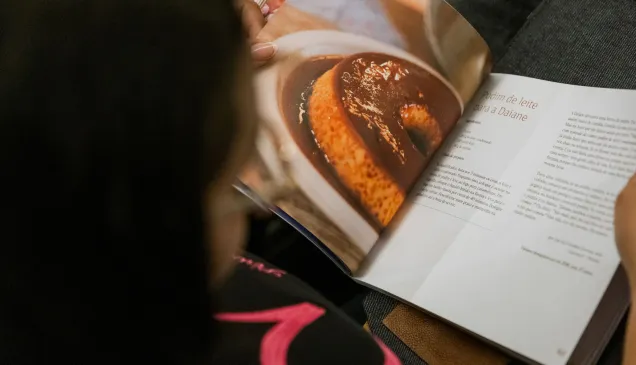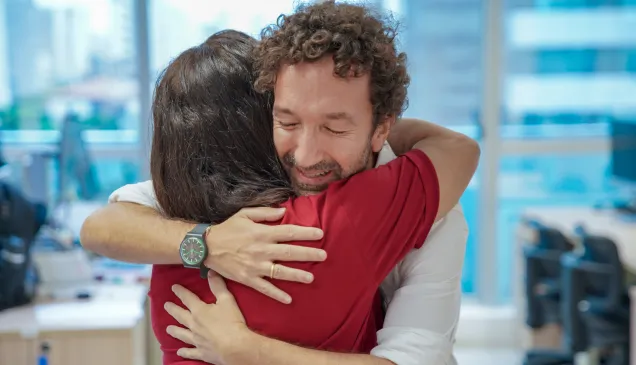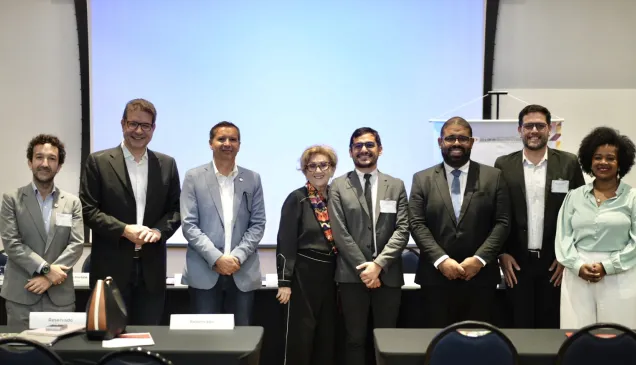Brazil: The ICRC's work to help migrants

Migration is a complex, global phenomenon, which has multiple and diverse causes. Regardless of why people leave their country of origin, when they migrate they can become vulnerable. One of the ICRC's priorities in Brazil is to help migrants.
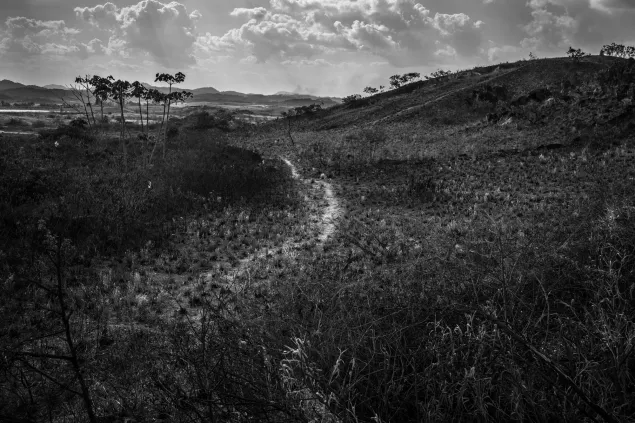
An alternative route from Venezuela to Pacaraima, Brazil
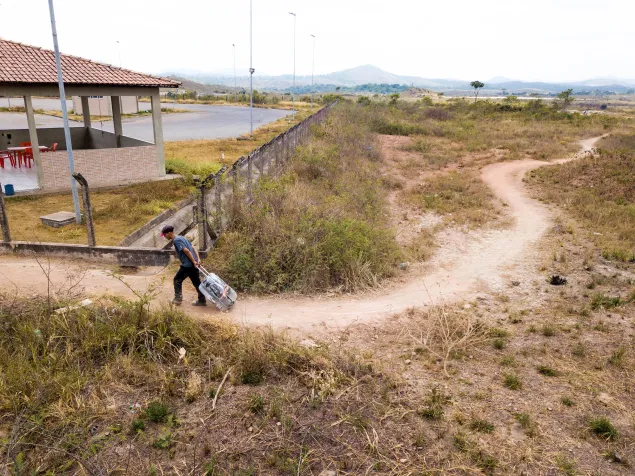
Venezuelan migrant arriving at Pacaraima, Brazil, via an alternative route
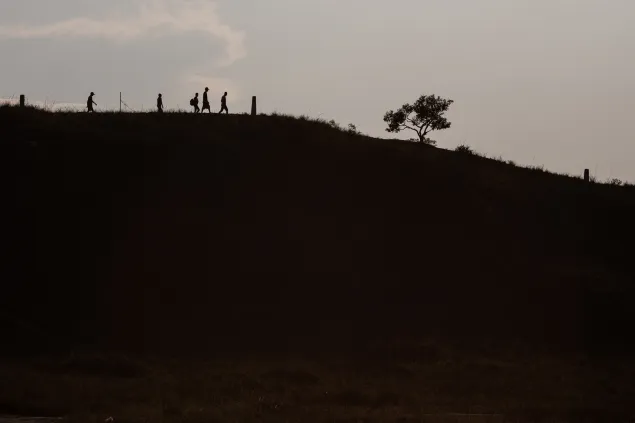
Migrants walk along alternative routes from Venezuela to Pacaraima, Brazil.
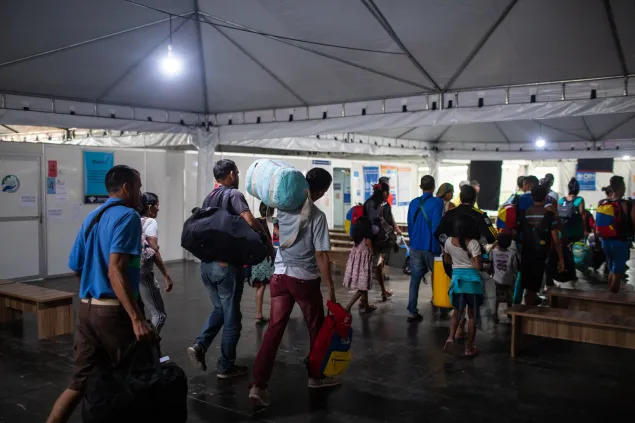
Migrants arriving at the reception centre in Pacaraima, Brazil
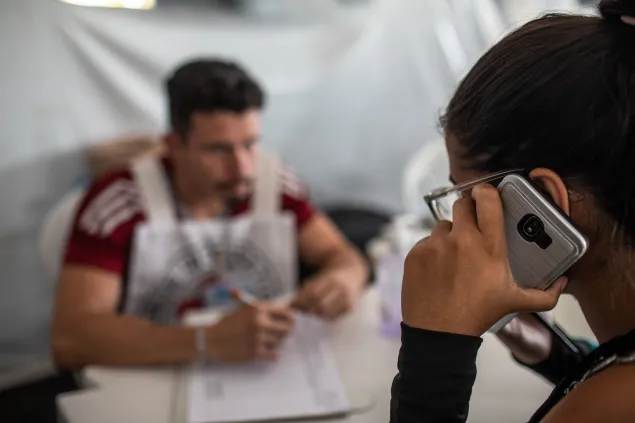
Migrant speaking with a family member at the ICRC's service station in Pacaraima, Brazil.
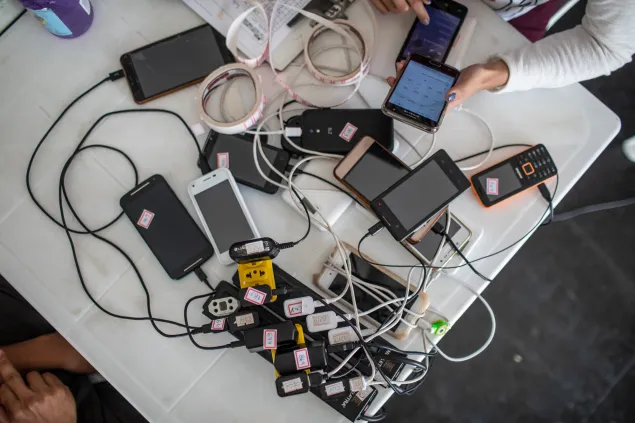
Migrant speaking with a family member at the ICRC's service station in Pacaraima, Brazil
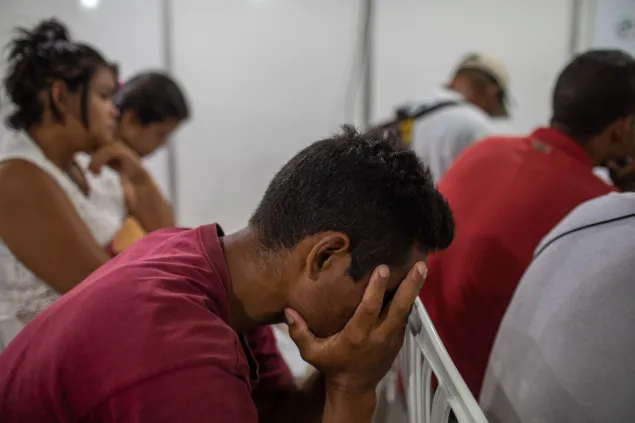
Migrant waiting to be served at the ICRC service station in Boa Vista, Brazil
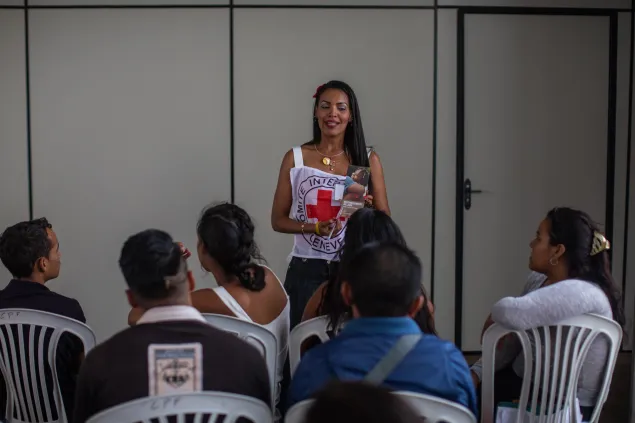
Eilyn Sarabia migrated to Brazil from Venezuela and joined the ICRC´s staff in Boa Vista
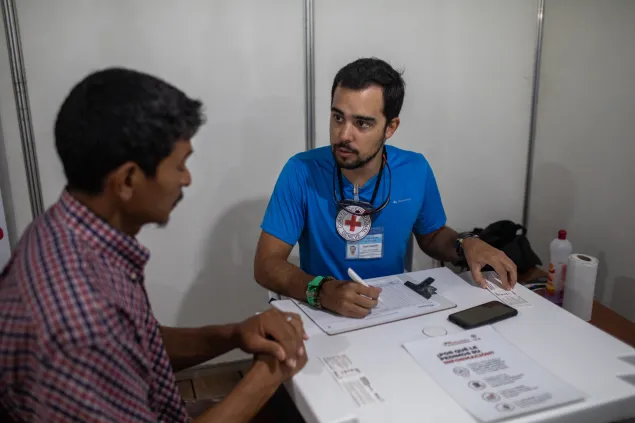
An ICRC employee gives guidance to a migrant at the ICRC's service station in Boa Vista, Brazil.
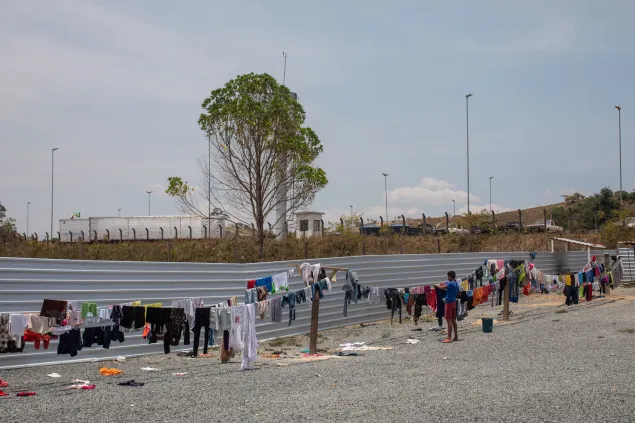
Migrant shelter in Pacaraima, Brazil
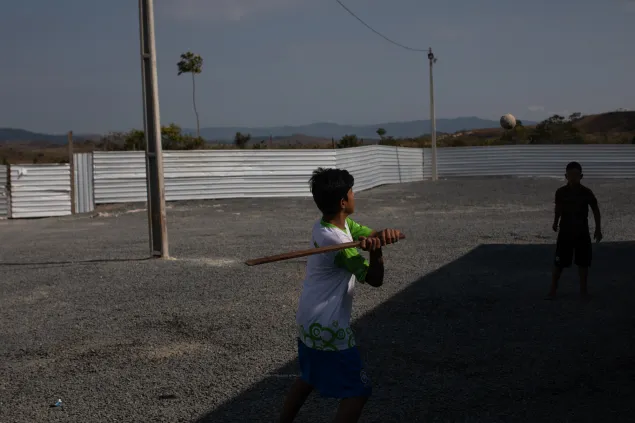
Migrant children playing baseball at the Pacaraima shelter, Brazil
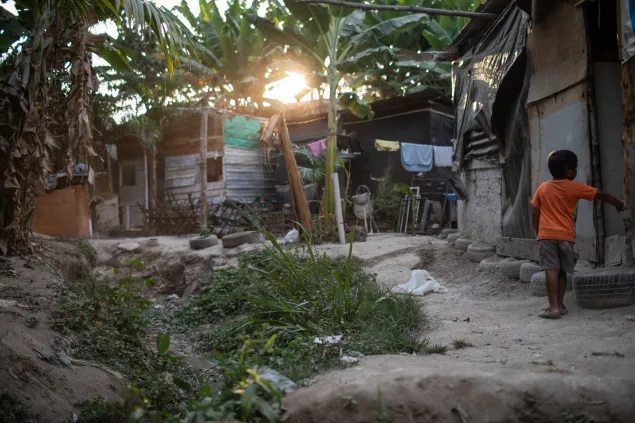
Family community of Venezuelan migrants in Pacaraima, Brazil
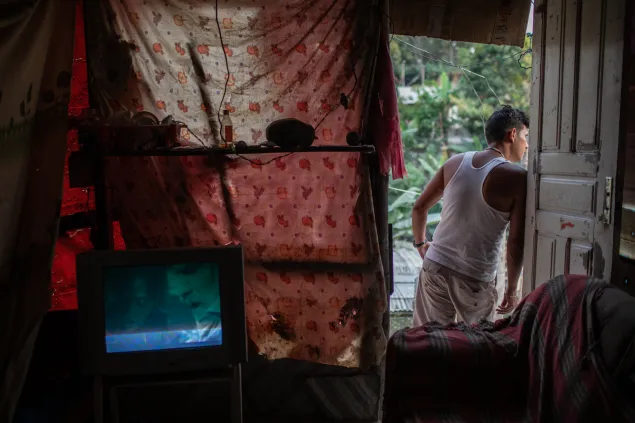
Venezuelan migrant from the family community in Pacaraima, Brazil
After a journey lasting several days, weeks or even months, hearing the voice of a close relative, a loved one, is a great encouragement, even if that voice is hundreds or thousands of miles away.
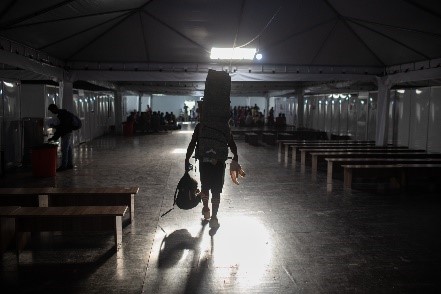
PHOTO: Igo Estrela/Metrópoles
In July 2018, the ICRC began implementing the Restoring Family Links (RFL) programme in three service stations located in the border city of Pacaraima, in northern Brazil. Additionally, in September another station was set up in Boa Vista, capital of the State of Roraima, where an ICRC office was also opened.
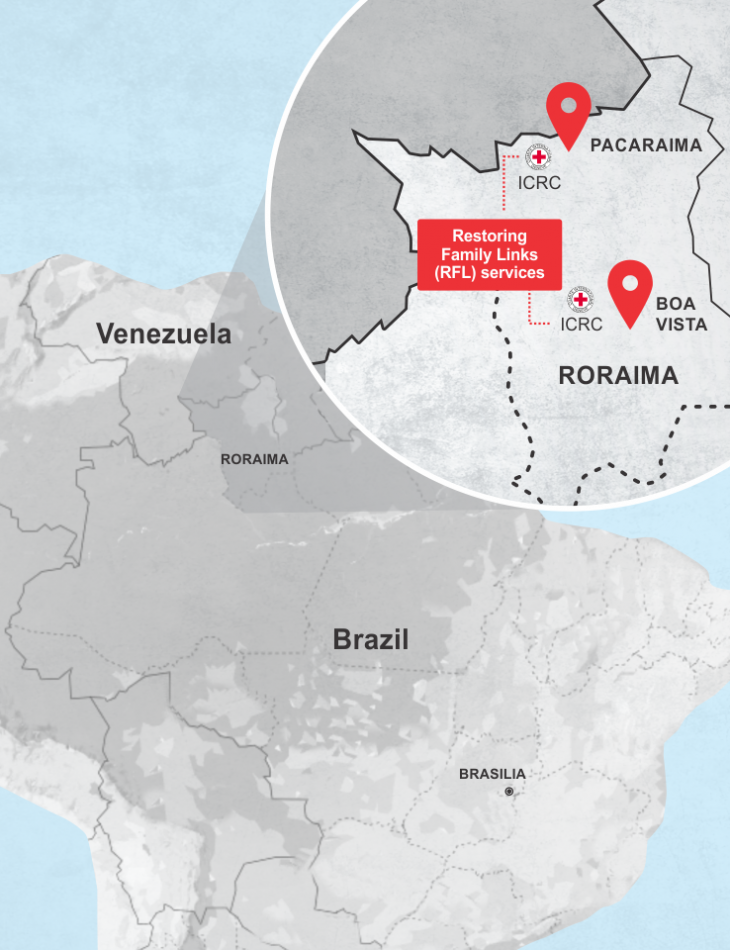
The service provided by RFL is part of the ICRC´s regional response to migration in several countries in South America. The objective of this initiative is to assist migrants, offering them the opportunity to stay in contact with their loved ones and to inform them of their whereabouts.
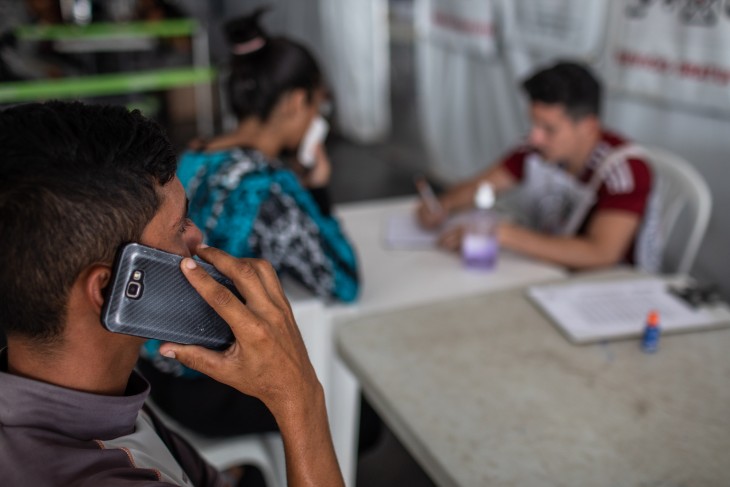
The migrants that get to the ICRC's service unit have the opportunity to speak by telephone with their families. Many of them do not have a telephone and the ones that have cannot afford long distance calls. The ICRC's service is free. Photo: S.Lefcovich/ICRC
"Many migrants arrive in Brazil with no mobile phones or with no international roaming services", explains Fernando Fornaris, head of the ICRC office in Boa Vista.
The service includes free 3 minute phone calls, as well as acces to internet for Facebook or Whatsapp and power supply for phone charging. Overall, more than 442 thousand services of phone calls, internet access and battery charging were used by migrants so far.
The service began to benefit more people since services were expanded in August 2019, in addition to being more accessible to migrants. In all, there are 17 service centers in Roraima:
| Frequency | Boa Vista | Pacaraima |
| Permanent Boa Vista: Monday to Friday from 9am to 5pm. Pacaraima: Sunday to Monday from 9am to 5pm. |
|
|
| Itinerant Two to three times a week service. |
|
|
| Weekly Once a week |
|
|
In Brazil, some migrants became collaborators of the ICRC in Pacaraima and in Boa Vista posts. Below are some testimonials (in Portuguese):
For a variety of reasons, migrants often arrive in Brazil without any documentation. The ICRC helps migrants contact families from their home countries to locate these documents. Once found, the ICRC facilitates the delivery of these documents to Brazil.
Water and sanitation
As part of the ICRC's water, sanitation and infrastructure activities, three wells were made in Pacaraima, one in the Diocese, one in the reception and identification office (PRI) and another at the State Hospital, from which more than 2000 migrants and local residents benefit every month.

